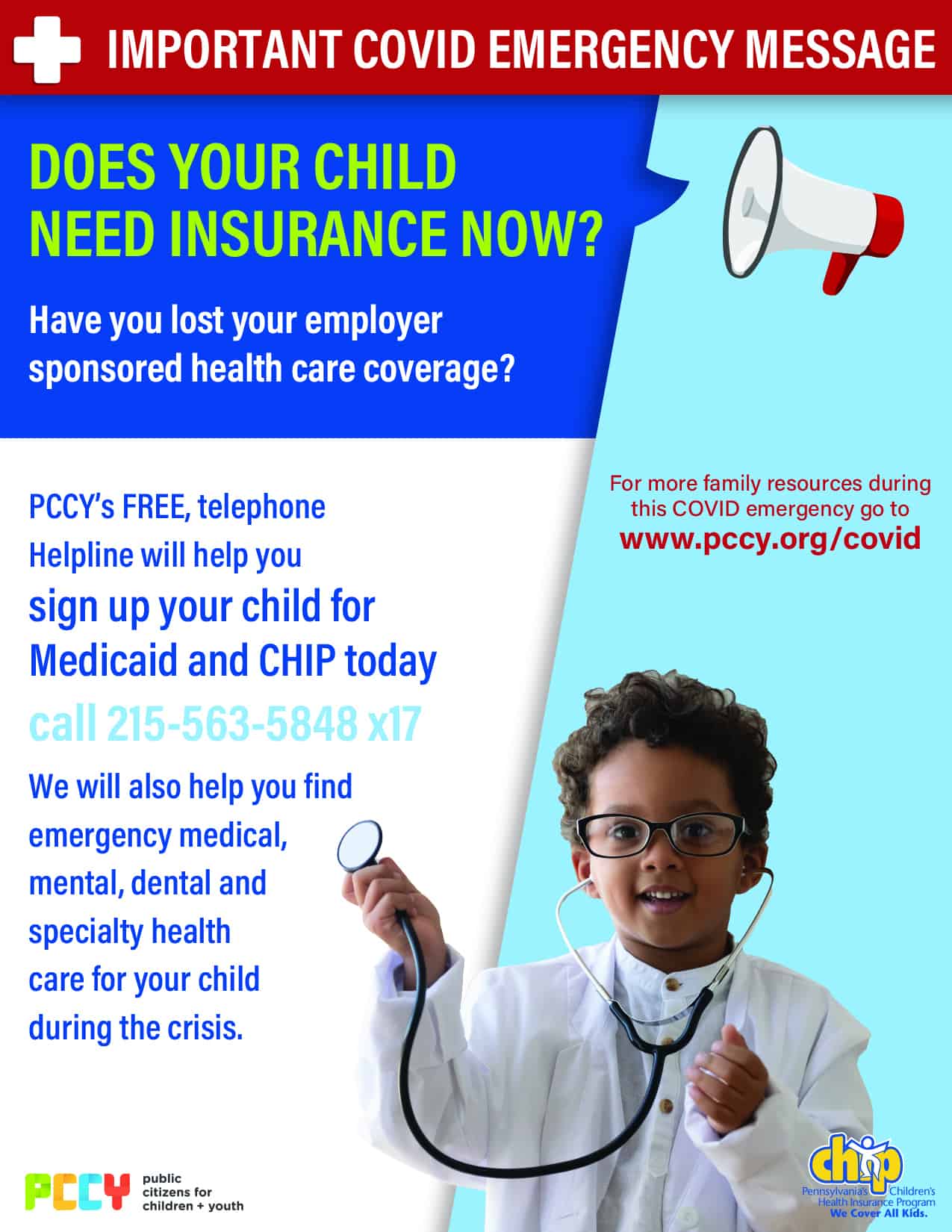To get health insurance for your child, compare plans and apply through your employer or government programs. Check eligibility for subsidies.
Ensuring your child has health insurance is crucial for their well-being. It provides access to essential medical services, preventive care, and emergency treatment. Start by researching various health insurance options available in the market. Employer-sponsored plans often include family coverage, which can be a cost-effective choice.
Government programs like Medicaid and the Children’s Health Insurance Program (CHIP) offer affordable options for families with lower incomes. Each program has specific eligibility criteria, so review them carefully. Explore the benefits, coverage limits, and premium costs to make an informed decision. Protecting your child’s health ensures they grow up healthy and strong.

Credit: www.childrenfirstpa.org
Introduction To Child Health Insurance
Health insurance for children is very important. It helps cover medical costs. It ensures your child gets the best care possible. Getting health insurance for your child can be easy.
Why It’s Important
Children need regular doctor visits. They need vaccines and check-ups. Health insurance covers these costs. It helps keep your child healthy.
Health insurance also covers emergencies. Accidents can happen anytime. Insurance helps pay for hospital visits. This reduces financial stress on families.
With insurance, children get better care. They see doctors more often. This leads to early detection of health problems.
Common Misconceptions
Many think child health insurance is too expensive. This is not true. There are affordable plans available.
Some believe their child does not need insurance. But children can get sick or injured. Insurance is a safety net.
Others think getting insurance is complicated. But many resources are available to help parents. Government programs and private insurers offer guidance.
| Myth | Reality |
|---|---|
| Child health insurance is too costly. | Affordable plans are available. |
| My child doesn’t need insurance. | Insurance is crucial for unexpected events. |
| Getting insurance is too complex. | Many resources can help you. |
Types Of Health Insurance Plans
Choosing the right health insurance plan for your child is crucial. There are several types of health insurance plans available. Each type offers unique benefits. Below, we explore the two most common options: employer-sponsored plans and private insurance.
Employer-sponsored Plans
Many parents get health insurance through their job. These are called employer-sponsored plans. Let’s look at the benefits and features:
- Lower Costs: Employers often pay part of the premium. This makes it cheaper for you.
- Comprehensive Coverage: These plans usually cover doctor visits, hospital stays, and more.
- Convenience: Premiums come directly out of your paycheck. You don’t have to worry about making payments.
Despite these benefits, there are some limitations:
- Limited Choices: You may have fewer plan options to choose from.
- Dependent on Employment: If you lose your job, you might lose your insurance.
Private Insurance
Private insurance is another option for your child’s health coverage. Here’s what you need to know:
| Advantages | Disadvantages |
|---|---|
|
|
Private insurance offers more flexibility. It’s ideal if employer-sponsored plans don’t meet your needs.
Government Programs
Finding health insurance for your child can be challenging. But, government programs offer valuable options. These programs ensure your child gets the care they need. Below, we explore two key programs: Medicaid and CHIP.
Medicaid
Medicaid provides free or low-cost health coverage. It serves families with low income. Medicaid covers many health services:
- Doctor visits
- Hospital stays
- Vaccinations
- Dental care
- Vision care
To apply, visit your state’s Medicaid website. You need to provide income and household information. If you qualify, your child gets immediate coverage.
Chip (children’s Health Insurance Program)
The Children’s Health Insurance Program (CHIP) helps families too. CHIP covers children from families who make too much for Medicaid. But, they cannot afford private insurance.
CHIP covers services like:
- Routine check-ups
- Immunizations
- Emergency services
- Prescription drugs
- Dental and vision care
To apply for CHIP, visit the Insure Kids Now website. You will find state-specific details and application steps. Your child can get the coverage they need.
| Program | Income Requirement | Services Covered |
|---|---|---|
| Medicaid | Low-income families | Doctor visits, Hospital stays, Vaccinations, Dental care, Vision care |
| CHIP | Moderate-income families | Check-ups, Immunizations, Emergency services, Prescription drugs, Dental and vision care |
These programs ensure your child gets necessary healthcare. Apply today and secure your child’s health.
Eligibility Criteria
Understanding the eligibility criteria for health insurance for your child is vital. This section will guide you through two key areas: Income Requirements and Age Limits. Meeting these criteria ensures your child gets the coverage they need.
Income Requirements
Income is a major factor in determining eligibility for child health insurance. Most programs have specific income limits that families must meet. These limits can vary based on household size and state.
| Household Size | Maximum Income (per year) |
|---|---|
| 1 | $25,520 |
| 2 | $34,480 |
| 3 | $43,440 |
| 4 | $52,400 |
Families with income below these limits can qualify. Make sure to check the specific limits in your state.
Age Limits
Another key criteria is the age of your child. Most programs have an upper age limit for eligibility.
- Children must be under 19 years old.
- Some states offer coverage up to 21 years.
- Newborns qualify as soon as they are born.
Check the specific age limits in your state to confirm eligibility.
Application Process
Getting health insurance for your child can seem tough. But understanding the application process makes it easier. Here’s a guide to help you through it.
Documentation Needed
You will need several documents to apply for health insurance for your child. These help verify your child’s identity and eligibility.
- Birth Certificate: Proves your child’s age and identity.
- Social Security Number: Needed for most health insurance applications.
- Proof of Income: Pay stubs, tax returns, or bank statements.
- Residency Proof: Utility bills or rental agreements to show where you live.
- Medical Records: Previous health records may be required.
Step-by-step Guide
Follow these steps to apply for child health insurance:
- Gather Documents: Collect all necessary documents listed above.
- Choose a Plan: Research and select the best health insurance plan.
- Fill Out Application: Complete the application form accurately.
- Submit Application: Send the completed form along with documents.
- Await Approval: Wait for the insurance company to approve your application.
If you need help, many health insurance providers offer assistance. They can guide you through the process and ensure you have all the required documents.

Credit: www.papartnerships.org
Maximizing Your Child’s Benefits
Ensuring your child gets the best from their health insurance plan is crucial. This involves taking advantage of routine checkups and preventive services. These services are often covered at no extra cost. Understanding how to utilize them can keep your child healthy.
Routine Checkups
Routine checkups are essential for monitoring your child’s growth. Most health insurance plans cover these visits. They include physical exams, immunizations, and developmental screenings.
| Age Group | Recommended Checkups |
|---|---|
| Infants (0-2 years) | Every 2-3 months |
| Toddlers (2-3 years) | Every 6 months |
| Children (3-6 years) | Annually |
| School-age (6+ years) | Annually |
These visits help detect any health issues early. Early detection means better treatment outcomes. Ensure to schedule these visits regularly.
Preventive Services
Preventive services include screenings, vaccinations, and health counseling. These services help prevent diseases before they start. Most plans cover these services without any out-of-pocket costs.
- Screenings: Vision, hearing, and dental screenings are essential. They help in early detection of issues.
- Vaccinations: Vaccines protect your child from serious diseases. Ensure your child is up-to-date with their shots.
- Health Counseling: Discuss healthy habits and nutrition with your doctor. This helps in maintaining a healthy lifestyle.
Taking advantage of these preventive services can save costs in the long run. They keep your child healthy and thriving.

Credit: exceptionallives.org
Frequently Asked Questions
How To Apply For Child Health Insurance?
You can apply online, through an agent, or at a local office.
What Documents Are Needed For Child Insurance?
You’ll need your child’s birth certificate, proof of residency, and your ID.
Can I Get Low-cost Health Insurance For My Child?
Yes, programs like CHIP offer affordable options for children.
Is My Child Eligible For Medicaid?
Eligibility depends on your income and state guidelines. Check with your local Medicaid office.
How Long Does Child Health Insurance Approval Take?
Approval can take a few weeks, depending on the provider and documentation provided.
Conclusion
Securing health insurance for your child ensures their well-being and your peace of mind. Follow the outlined steps to navigate the process smoothly. Research, compare plans, and consult professionals if needed. A well-chosen policy can provide essential coverage and financial protection for your child’s health needs.
Start today for a healthier future.